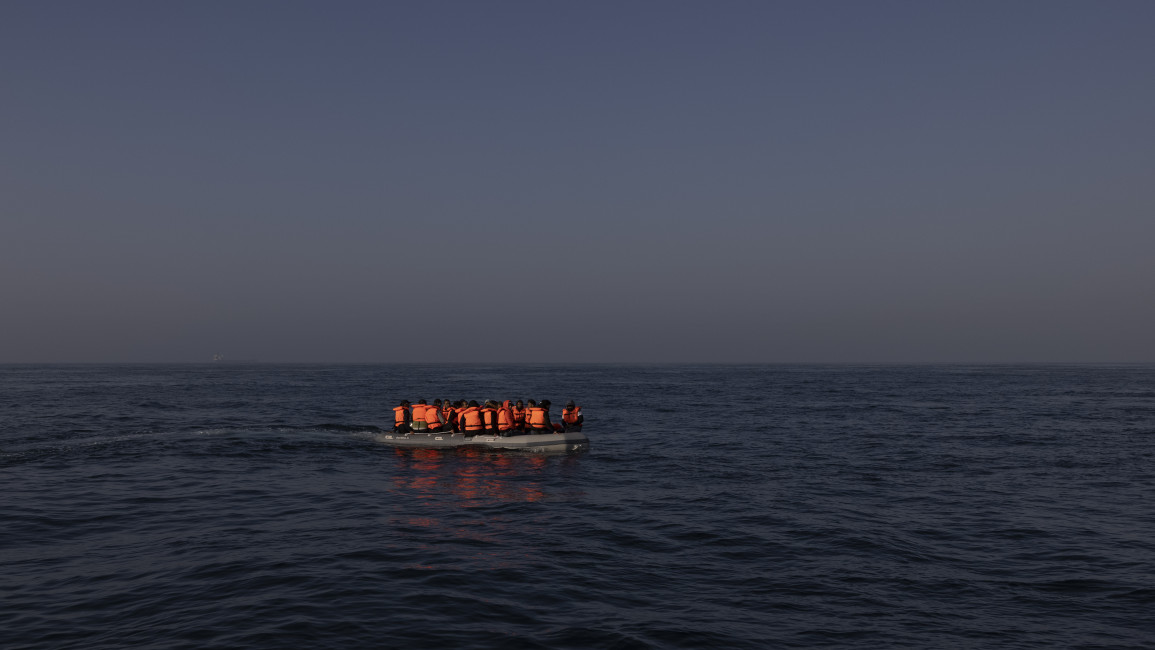Syrian refugee sues EU border agency over pushback from Greece to Turkey
A Syrian who says he was illegally pushed back into Turkey by Greek authorities is suing the EU border agency Frontex for alleged complicity, the association mounting his legal case told AFP on Thursday.
The lawsuit was lodged March 10, according to the European Court of Justice website.
The plaintiff, Alaa Hamoudi, is claiming 500,000 euros ($550,000) from Frontex over action he says the Greek coast guard took on April 28-29, 2020, according to the Front-Lex legal association representing him.
Front-Lex said that, after Hamoudi arrived on the Greek island of Samos with around 20 other asylum-seekers, they were loaded by Greek authorities onto a crowded inflatable dinghy and abandoned at sea for 17 hours.
A Frontex plane surveilled the situation at the time, alleged Hamoudi, who now resides in Turkey.
Such an act, if proven, could constitute "refoulement" - the forcible return of refugees or asylum-seekers which is illegal under international law binding on all countries.
Frontex, the EU's biggest agency with a budget of 750 million euros this year, has been helping the Greek coast guard monitor the Greek side of the maritime border with Turkey.
An October 2020 investigation carried out by the open-source analysis group Bellingcat with the journalist cooperative Lighthouse Reports and several media outlets including Der Spiegel determined that Frontex was complicit in refoulements in Greek waters.
The findings triggered several inquiries in the EU over Frontex and its practices.
However a working group set up by Frontex's own management board released a conclusion that there were "no indications" of the April 28-29 incident reported by those outlets.
The EU's anti-fraud office OLAF in February sent conclusions from its own investigations to Frontex's board, but those have so far been kept under a cloak of confidentiality.


![President Pezeshkian has denounced Israel's attacks on Lebanon [Getty]](/sites/default/files/styles/image_684x385/public/2173482924.jpeg?h=a5f2f23a&itok=q3evVtko)



 Follow the Middle East's top stories in English at The New Arab on Google News
Follow the Middle East's top stories in English at The New Arab on Google News


